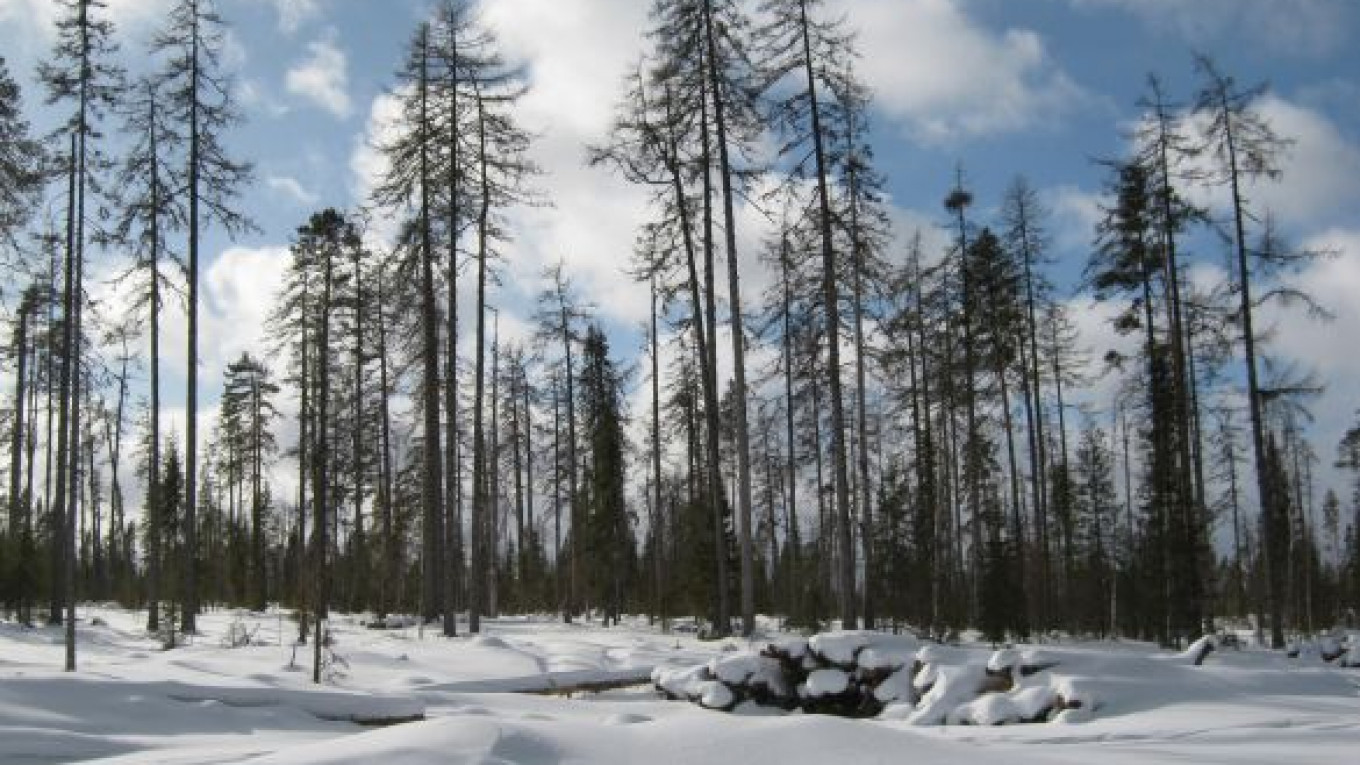Tree cutting in formally protected forest areas has increased dramatically as timber companies look for new sources of the diminishing natural resource and more and more frequently take advantage of ever more vaguely worded logging rules.
Ecologists are warning that further exploitation of these forests could lead to climatic shifts and the destruction of vulnerable ecosystems in Russia.
The Forest Code outlines 17 categories of protected forests, which play a special part in the ecosystems around them. This includes forests that protect water catchment areas, prevent erosion, shelter from winds, have historical or scientific value or help to meet the basic needs of local communities. But over the years, amendments to rules have made it easier for logging to take place in such zones.
Protected forest areas made up approximately 25 percent, or over 400 million hectares, of total forest land in 2010. Logging in these forests is either prohibited or restricted. But this is changing.
"Now it is [legally] possible to lease out protected forests and cut down trees in all protected areas with the aim to harvest wood," said Konstantin Kobyakov, coordinator of forestry projects at the World Wildlife Fund in Russia. "We are seeing the practical consequences of this. Logging in protected forests has increased dramatically."
The problem of logging in protected areas is not on a mass scale yet, but some regions are already feeling it. More than half of the protected forests in Primorsky Krai have already been leased out with the aim to turn them into logging sites, Kobyakov said.
Ecologists are particularly worried about the recent spark in interest in pre-tundra forests in the north, which border the tundra. The areas that fall under this category can be 30 to 150 kilometers wide, though much of the territory is occupied by swamps and barren land.
These forests — which make up 37.5 percent of the area of all protected forests — help to preserve climate stability and are home to many rare species. Artyom Stolpovsky, an ecologist from Arkhangelsk region, cautioned that these forests were very vulnerable to their location, so even minor tree cutting could lead to a collapse in the ecosystem.
If there were no tree wall on the shore of the White Sea, for example, the weather in Arkhangelsk region would be similar to Murmansk, at best, Stolpovsky said.
"This is a very vulnerable ecosystem and if you add human interference, it might not be able to withstand it," he said.
As regular forests are getting depleted, logging companies are setting their sights on these pre-tundra forests, which were previously not considered lucrative because of their low density. The companies have successfully lobbied for the removal of a ban on selective industrial logging in these forests, so now only clear cutting is prohibited.
Some of these areas have already been leased out for logging. Trees on the 64th and 65th parallels are getting cut down, with the most northern, 50-hectare logging area located just 100 kilometers from the Arctic Circle, Stolpovsky said.
Meanwhile, in the Komi Republic and Eastern Siberia, these areas are under threat from oil exploration.
Ecologists blame much of these problems on the existing Forest Code, whose proscriptions about protected forests they say are too vague. In 2010, Arkhangelsk activists succeeded in getting one logging company to set aside a portion of forest under its control as a no-cutting zone, but a month later the government leased a neighboring zone to a different bidder.
"At first glance, the Forest Code looks good and logical, but if you look at concrete standards that have been established, what you can do in protected forests and what you can't, it gets worse," Kobyakov said. "In reality, today there is practically no special treatment of protected forests."
Contact the author at e.smirnova@imedia.ru
A Message from The Moscow Times:
Dear readers,
We are facing unprecedented challenges. Russia's Prosecutor General's Office has designated The Moscow Times as an "undesirable" organization, criminalizing our work and putting our staff at risk of prosecution. This follows our earlier unjust labeling as a "foreign agent."
These actions are direct attempts to silence independent journalism in Russia. The authorities claim our work "discredits the decisions of the Russian leadership." We see things differently: we strive to provide accurate, unbiased reporting on Russia.
We, the journalists of The Moscow Times, refuse to be silenced. But to continue our work, we need your help.
Your support, no matter how small, makes a world of difference. If you can, please support us monthly starting from just $2. It's quick to set up, and every contribution makes a significant impact.
By supporting The Moscow Times, you're defending open, independent journalism in the face of repression. Thank you for standing with us.
Remind me later.






